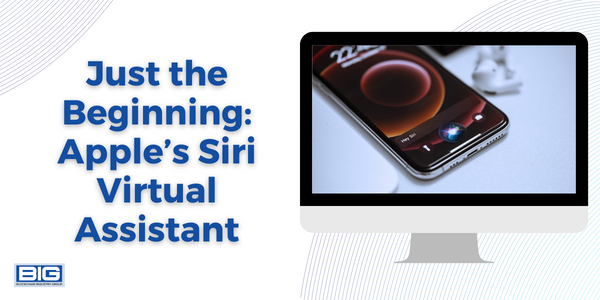
Apple Inc. is a multinational technology company that designs, develops, and sells consumer electronics, computer software, and online services. The company is best known for its hardware products, which include the iPhone, iPad, Mac, iPod, and Apple Watch. Apple’s software includes the macOS and iOS operating systems, the iTunes media player, and the App Store, which is a platform for downloading and purchasing apps. Apple also offers online services such as the iCloud storage service and the Apple Music streaming service.
Siri is a virtual assistant that was developed by the company SRI International, which was later acquired by Apple Inc. The development of Siri began in 2005, when the Defense Advanced Research Projects Agency (DARPA) awarded a grant to SRI International to develop a natural language processing (NLP) system that could be used in military intelligence. The project, which was called CALO (Cognitive Assistant that Learns and Organizes), was designed to create a software program that could learn from and adapt to the user’s individual language patterns and preferences.
The CALO project was successful in developing a number of NLP technologies, and in 2010, a spin-off company called Siri Inc. was created to commercialize these technologies. Siri Inc. released a virtual assistant app for iOS called Siri in February 2010, which used the NLP technologies developed during the CALO project to interpret and respond to voice commands. The app was well received and quickly gained popularity.
In April 2010, Apple Inc. acquired Siri Inc. and integrated the virtual assistant into its iOS operating system. The Siri app was subsequently removed from the App Store and became a built-in feature of the iOS operating system. Apple has continued to develop and improve Siri since the acquisition, adding new features and expanding the assistant’s capabilities over time. Today, Siri is available on a wide range of Apple devices, including the iPhone, iPad, iPod Touch, Mac, Apple Watch, and Apple TV.
Siri offers many benefits and advantageous uses for it’s fans:
- Hands-free operation: With Siri, you can perform tasks and access information without having to type or even touch your device. This can be especially convenient when you’re driving, cooking, or otherwise occupied.
- Voice recognition: Siri uses advanced voice recognition technology to accurately interpret your requests and respond appropriately. This can be faster and more efficient than typing, especially if you have to type on a small keyboard or screen.
- Natural language processing: Siri is designed to understand and respond to human language, so you can ask questions or make requests in a natural, conversational way. This c`n be more intuitive and user-friendly than trying to remember specific commands or syntax.
- Customization: Siri can learn your individual language patterns and preferences over time, making it more tailored to your needs.
- Integration: Siri can access and control a wide range of features and functions on your device, as well as connect to a variety of internet services and apps. This allows you to access and use a variety of information and tools without having to switch between different apps or menus.
Top 10 Schools with Hidden Gem AI Programs
Top 5 Countries Competing for AI Dominance
Utilizing AI to Scale Content Creation: A Competitive Advantage
These capabilities make Siri a convenient and user-friendly tool for accessing information and performing tasks on Apple devices. In the future, it is likely that Siri will become even more useful as it continues to evolve and improve. Apple is likely to continue integrating Siri into a wider range of products and services, making it an even more integral part of the Apple ecosystem. Additionally, as artificial intelligence and machine learning technologies advance, Siri is likely to become more intelligent and capable of handling an even wider range of tasks and requests.



